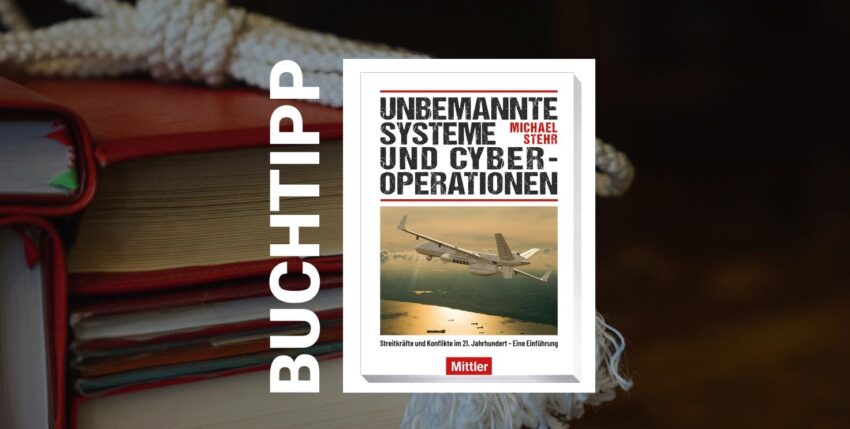In the wars of past centuries, it was essentially a question of who could assemble the largest armed force with the most weapons behind them. However, the advancing technologisation did not stop at the armed forces and so armies that deployed superior or even completely new weapons were able to gain a dominant position. Now, with the widespread introduction of unmanned systems and the use of cyber operations, two further technological revolutions are on the horizon.

In his volume, Michael Stehr provides an excellent and detailed introduction to these technologies. The differences between remote-controlled, automated and autonomous systems are first analysed. Using many examples, the author shows how such means have been used so far, what possibilities they offer, but also where the boundaries must be drawn now and in the near future.
In this video, Dr Michael Stehr also explains everything about the new topic of cyber systems. Watch video here
Like all technologies, automated and autonomous systems are not reserved for the military and it is therefore not surprising that civilian developments and application examples are taking up a lot of space. After all, it is the financially strong and well-known high-tech companies that are driving their developments forward with great strides. The military complex will also quickly benefit from these achievements. As soon as the technology is available, it can be deployed relatively quickly and cheaply, but above all in large numbers. However, mistakes cannot be ruled out. This leads on to the second part of the book, which deals with the legal and ethical problems of the new technologies. Among other things, it addresses issues arising from the use of unmanned maritime vehicles. The situation is even more complex when it comes to cyber operations, as these are carried out covertly and in a space that is barely visible to outsiders. Unlike in a conventional war, the damage caused is usually not visible. In addition, effective regulation with the help of laws often has its limits. Ethical principles remain as a restriction, but these are assessed differently from nation to nation and are currently not universally applicable. Stehr's book shows that by no means all the questions that arise in relation to the use of unmanned systems have been resolved. Just as the underlying technologies are developing rapidly, regular updates to this work will also be essential.
Michael Stehr: Unmanned systems and cyber operations: Armed Forces and Conflicts in the 21st Century - An Introduction, Mittler im Maximilian-Verlag, Hamburg 2020, 19,95 Euro, ISBN: 978-3-8132-1103-0
Text: mb; Graphics: Elb Bureaux








